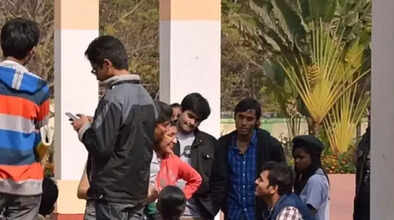CUET Exam: 'Reached 6 minutes late, was not allowed to take the exam', what did the judge say to the girl who reached the High Court?

CUET Exam: The Delhi High Court rejected the appeal of a student who appeared six minutes late in the University Entrance Test (CUET). The court said that there should be no leniency in this.
Delhi High Court News: The Delhi High Court refused to give relief to the student who appeared six minutes late in the 'Common University Entrance Test' (CUET), underlining the 'purity and discipline' of the exam. The 18-year-old student claimed that on May 13, she reached the examination center at around 8.36 am, six minutes after the scheduled time of the exam, but she was not allowed entry.
The gates were closed around 8.30 am.
A bench of Justice Pratibha M Singh and Justice Rajnish Kumar Gupta was hearing the student's petition against the order of a single judge who refused to intervene in the matter. The bench observed that the information bulletin and admit card of the National Examination Authority had very clear instructions about reaching the centre at around 7 am, two hours before the commencement of the exam and that the gates would be closed around 8.30 am. The bench said that negligence in the conduct of such a large examination would lead to chaos and “examination discipline must be maintained”.
The court said on May 31, “CUET is an important entrance examination and reaching the examination hall on time, reaching the seat on time and being at the centre before the gate closing time are all part of the discipline and ethos of the examination system, which should not be relaxed. Because it may create huge inequality among students of similar status. ”
Student's appeal rejected
The bench rejected the student's appeal and said, "One may feel that it was a matter of only six minutes, but the authorities cannot be blamed for strictly enforcing the rule of gate closing time."
The court said, "CUET UG exam is an exam in which more than 13.54 lakh students from all over the country appear. If exceptions are made, and discipline is not followed in such an examination, then the timely conduct of the examination, timely declaration of results and timely admission to colleges and universities may all be in danger and it will have a wide impact. In such cases, the interference of the court should be minimal. ”

